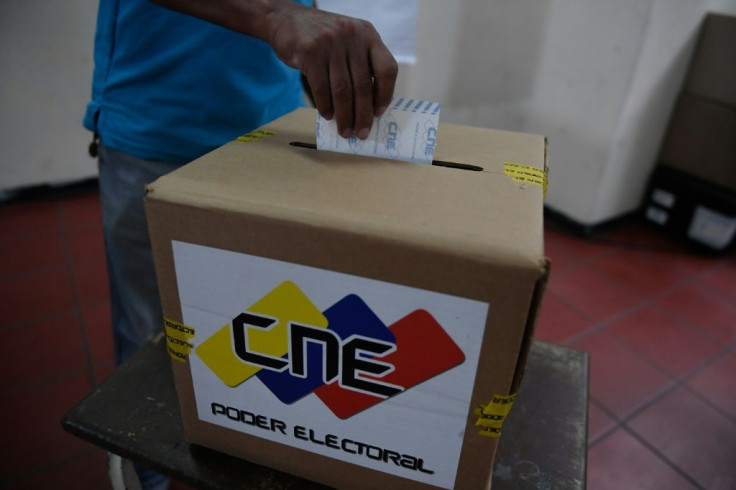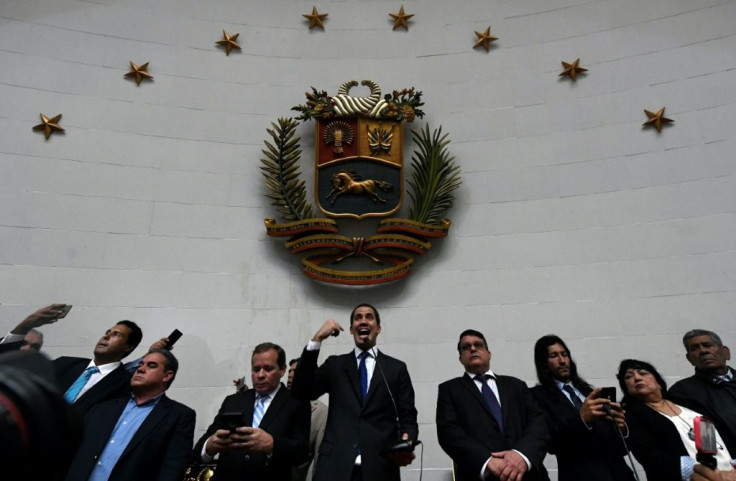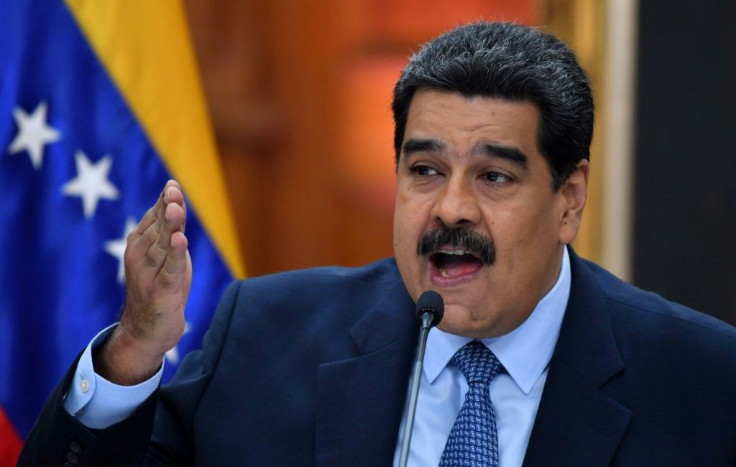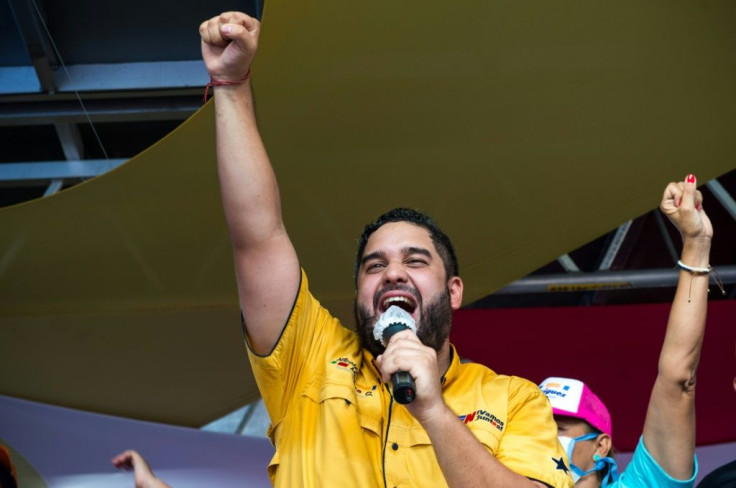Maduro Allies Set For Poll Victory With Guaido On The Ropes
President Nicolas Maduro and his allies are set to dominate Sunday's legislative elections in Venezuela, which are being boycotted by the mainstream opposition parties led by his main rival Juan Guaido.
Victory will give Maduro's ruling Socialist Party control of the National Assembly, the only institution not yet in its hands.
Defeat will potentially leave the opposition, and Guaido, out in the political cold, despite being recognized by more than 50 countries as interim president.

"I know that we are going to have a great triumph. I know it!" a confident Maduro told an election rally this week.
Maduro's 30-year-old son, Nico, a professional musician, is running for a seat in La Guaira, north of Caracas.
"We are going to solve the problems we have with the new National Assembly. The opposition, the extremist right, has no plan for the country," he told AFP.
Guaido, 37, called for a boycott in August on grounds that "free and fair" conditions for holding elections do not exist. He labeled Sunday's poll "a fraud."

Instead, Guaido and his allies plan a week-long plebiscite from Monday seeking public support to prolong the mandate of the current National Assembly.
"Maduro's objective isn't even to gain legitimacy," Guaido told AFP in an interview this week, adding that the goal was instead to "annihilate the democratic alternative in Venezuela."
Maduro, a former bus driver who became president on the death of his mentor Hugo Chavez in 2013, was re-elected in 2018 in fraud-tainted polls, a victory which much of the international community branded illegitimate.

The United States, the European Union and many Latin American countries have long blamed Venezuela's crippling economic crisis on Maduro's repression and mis-rule.
Instead, they backed Guaido when the National Assembly speaker proclaimed himself interim president in January of last year.
Initial enthusiasm has waned, however, with critics seeing Guaido's plebiscite ploy as a desperate gamble.
Victory on Sunday will provide Maduro with important validation in the eyes of his foreign allies, helping his regime circumvent US and EU sanctions, according to Luis Vicente Leon, director of pollsters Datanalisis.

"He is not looking at the United States, or Europe, to recognize him....he wants China to feel there's an institutional framework that can provide backing for agreements such as those on oil or infrastructure."
Allies such as Russia, India, Mexico and Turkey, will feel similarly reassured, Leon said.
The electoral authority, appointed by the Maduro-friendly Supreme Court, said more than 20 million people are eligible to vote in the disputed polls.
Maduro's ruling party strategists have mobilized the party machine to urge a large turnout on Sunday. However, pollsters expect turnout to be as low as 30 percent.
"It will be a war of perception," said Felix Seijas of analysts Delphos. The opposition is counting on a low turnout to undermine Maduro, who needs to show the tide of public opinion has turned away from Guaido.
Opposition dissidents who criticize Guaido for calling the boycott will take part in the election, despite being accused of lending Maduro legitimacy.
"They are going to represent the new opposition after January 5" when the new legislature takes office, said political scientist Jesus Castillo.
Analysts say the Guaido-led opposition lacks direction and has erred by putting too much emphasis on its quest for international support.
Guaido has called for increased sanctions from the US and EU, even though a Datanalisis poll showed 71 percent of Venezuelans oppose more crippling sanctions.
Countries aligned with Guaido will reject the result, said Seijas. "But how forcefully? If the rejection is not forceful, opposition morale will plummet even further."
Leon said some European allies were becoming increasingly concerned about giving Guaido "carte blanche" for an interim role "ad infinitum".
"They feel that recognition, without elections, without validation, is like naming an emperor."
The opposition is already divided over the wisdom of a boycott, said Leon.
"You are offering an abstention that leads absolutely nowhere else than the same place you are already in," the analyst said. "The only thing you manage to preserve is an interim government that's symbolic."
© Copyright AFP 2024. All rights reserved.





















